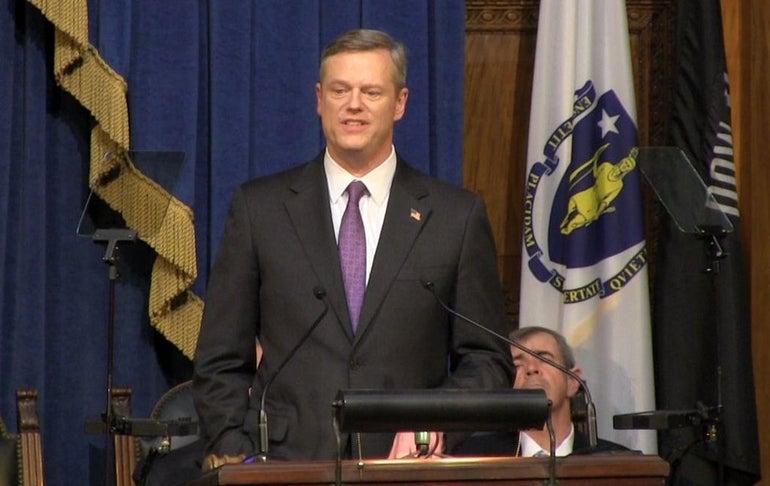The lieutenant governor, Baker administration officials and municipal administrators on Tuesday testified in support of reforms that they said would give municipal government officials in Massachusetts more flexibility and control.
The sections of Gov. Charlie Baker’s reform bill (H 3908) considered Tuesday by the Joint Committee on Revenue dealt mostly with municipal finance, like overlay accounts and assessing cycles. But the provision that garnered the most attention Tuesday would give municipalities the first crack at buying properties that are not on the tax rolls.
“The proposal before you gives municipalities the first right of refusal if a property owned by a charitable organization or church is being sold or developed for a non-exempt purpose,” Sean Cronin, the Department of Revenue’s senior deputy commissioner for local services, told the committee.
Local officials, many of whom were at the State House on Tuesday to attend a meeting of the Local Government Advisory Commission, told the committee that having the opportunity to buy tax-exempt land could solve open space issues or allow a town to expand its own facilities.
“This gives towns the opportunity to obtain exempt property that they may not otherwise have been able to,” Lane Partridge, the town assessor in Concord, said. “They’ve had no taxation sometimes for decades and … to give us the opportunity to at least obtain them at the same price that they would sell on the open market, it just seems like that’s a smart thing to do.”
But a statewide organization that advocates for nonprofit organizations raised concerns over the provision, which it called “a very significant, very large, very extreme departure from current law and policy as it relates to property rights.”
“When you say you might provide municipalities with a right of first refusal, an option, that sounds like a fairly simple, innocuous thing, but in fact it’s not,” Massachusetts Nonprofit Network CEO Jim Klocke said. “We see a number of very practical problems that it would cause that would very significantly limit a nonprofit’s ability to utilize their land, to potentially change the use of their land, to develop their land or to partner with other institutions.”
And Roberta Brien, vice president for projects at the Worcester Business Development Corporation, told lawmakers that the right of first refusal provision could also negatively impact development corporations that might hold property under the name of nonprofit organizations to protect the corporation from certain risks.
Baker’s bill would also decrease the frequency of the Department of Revenue’s local property assessment certification process to every five years instead of every three, and would allow cities and towns to enforce the prohibition on utilities keeping double poles up for more than 90 days.
“The modernization bill has a lot of weeds in it and there’s a lot of stuff in it that collectively will add up to a lot of savings and more efficiencies for our communities,” Lt. Gov. Karyn Polito said. “So when you combine the resources that we share with our municipalities, the best practices program that you have helped to fund, and now a modernization bill that will streamline, give more control and flexibility to our communities, I think collectively we’ll all get to a good place to help our communities do even more.”
After Baker filed the bill, the Legislature split it into five smaller bills so committees could consider only the parts that were most applicable. On Tuesday, speaking to the Local Government Advisory Commission, Baker asked the municipal officials to suggest lawmakers ought to put the pieces back together again before passing it.
“The one thing we’re all a little nervous about is whether this ends up being one bill or five. You should just know that there’s a lot of chatter about having this as five bills. We would obviously like to see it as one bill,” he said.
No one who testified at the Revenue Committee hearing Tuesday requested that the bill be stitched back together.

